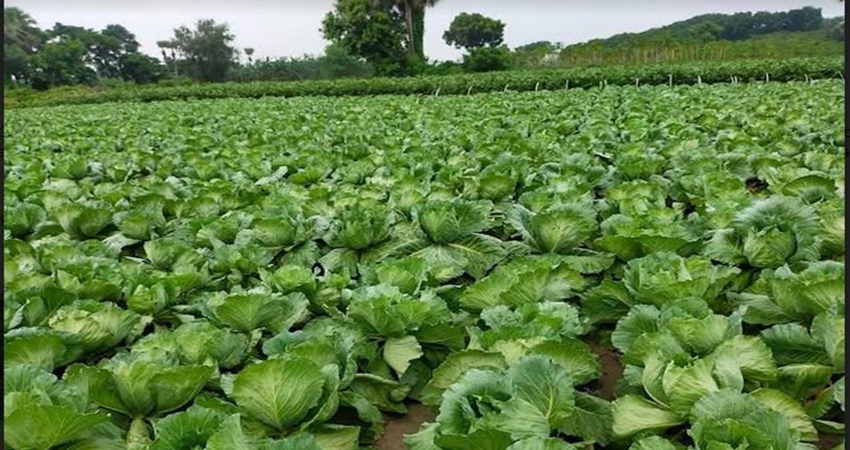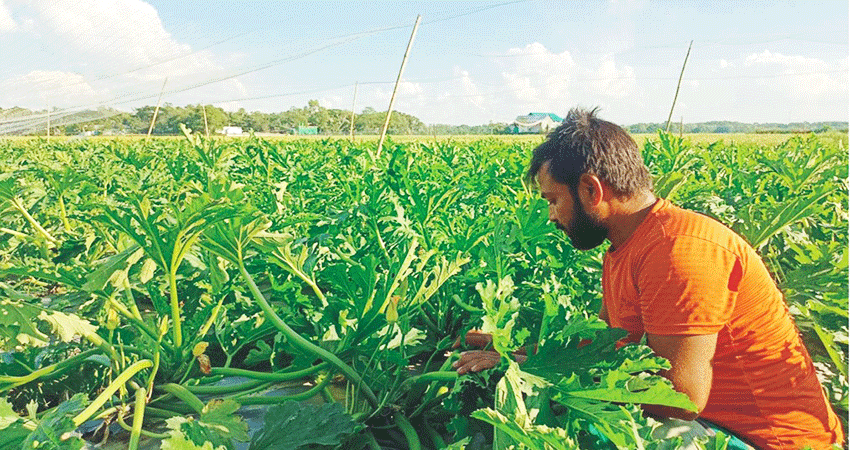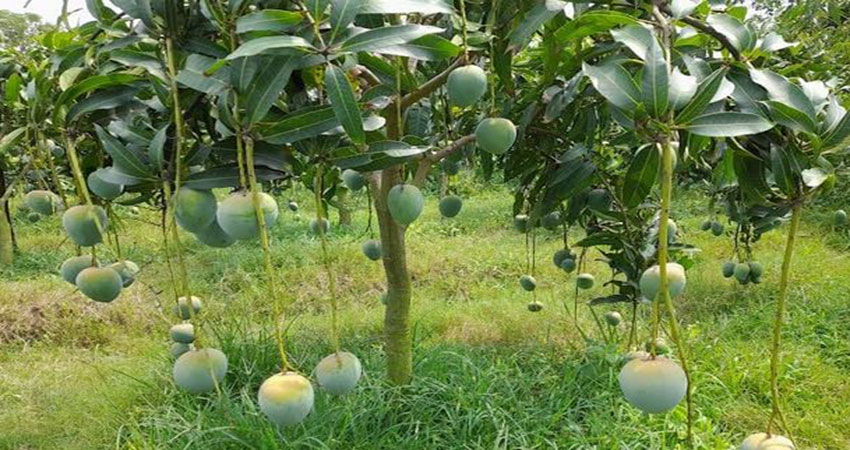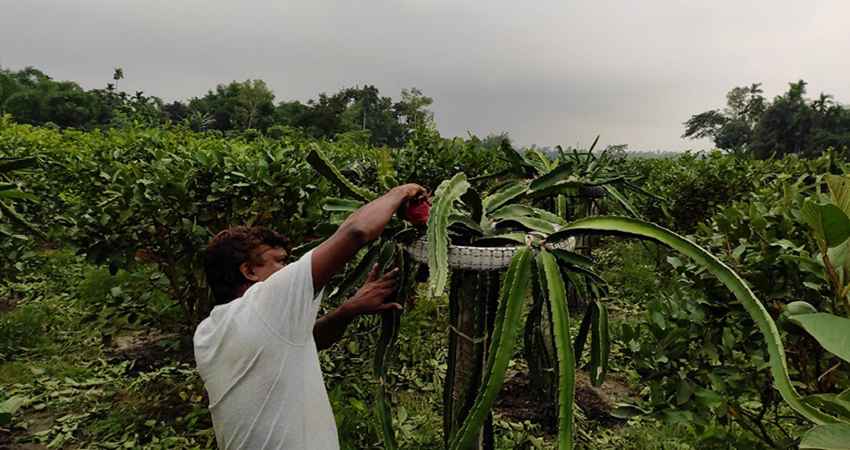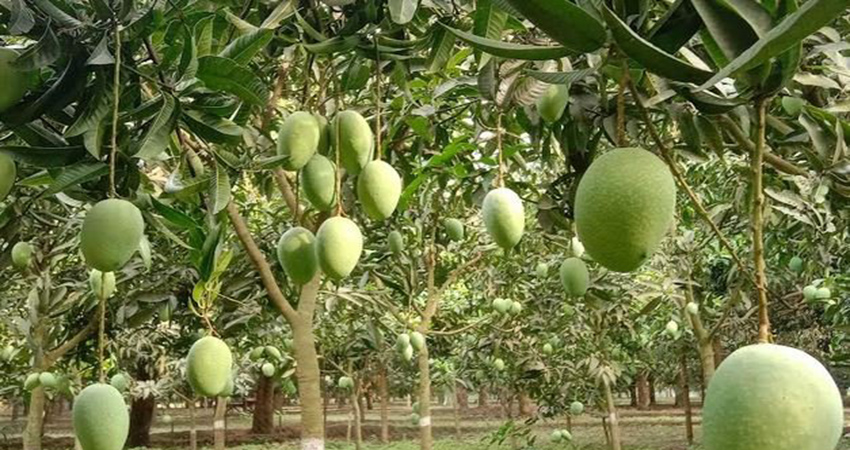Farming of summer cabbage has been gaining popularity as many people are seen cultivating the high-value crop commercially in the region, including its vast Barind tract, due to its gradually mounting demands.
The unseasonal vegetable crop is seen selling in both the wholesale and retail markets with exorbitant prices for over a month inspiring many others to grow the cash crop.
Azizul Islam, 45, a farmer of Imamganj village under Godagari upazila, has cultivated the vegetable on around one and half bigha of land with more than 10,500 plants during the current season after getting success on ten kathas of land in the previous season.
"I have been selling the newly harvested vegetable at Taka 60 per kilogram on an average for the last two weeks," he said, adding the sale-proceed is many more compared to the late season of winter.
Entazul Haque, 54, another farmer of Fulbari village, has cultivated the crop on three bighas of land and has completed selling one bigha. The non-season vegetable is giving better profit to the growers compared to the winter season at present.
He said cabbage is mainly a winter vegetable but the farmers have been cultivating it during the summer season in the region for the last couple of years to earn more money as the consumer-level demand is gradually mounting.
Muhammad Milon, 45, a farmer of Golai village, has cultivated cabbage on around 10 bighas of land and has been selling it for the last two weeks.
Demands of the unseasonal vegetable have been increasing gradually due to rising awareness among the public in general about the importance of food values as the nutritious foods as well.
Professor Mahbubur Rahman Khan of the Department of Medicine in Rajshahi Medical College and Hospital opined increasing consumption of plant-based foods like cabbage decreases the risk of diabetes, obesity and heart diseases.
It can also help promote a healthy complexion, increased energy and overall lower weight.
Quoting research findings Prof Rahman Khan said the fiber and water content in cabbage also help to prevent constipation and maintain a healthy digestive tract.
Eating adequate fiber promotes regularity, which is crucial for the excretion of toxins through the bile and stool.
Recent studies have shown that dietary fiber may even play a role in regulating the immune system and inflammation, consequently decreasing the risk of inflammation-related conditions such as cardiovascular disease, diabetes, cancer and obesity.
Sub Assistant Agriculture officer Atanu Saker told BSS that they are witnessing more interest among the farmers towards summer cauliflower and cabbage farming in the region.
Currently, around 70 enthusiastic farmers of eight villages are seen
cultivating the high-valued crops on around 350 bigha of land only in Iswaripur block of Dewpara Union and most of them are delighted over the farming.
Godagari Upazila Agriculture officer Sharmin Sultana said they are extending technical support to the farmers to make the vegetable farming profitable. The vegetable farming is more profitable compared to the cereal crops, including paddy.
Mozder Hossain, Deputy Director of Department of Agriculture Extension, told BSS that cauliflower and cabbage are being cultivated on around 20 hectares of land in the district at present. Godagari, Paba, Puthiya and Durgapur upazilas are seen dominating in this field.
He said farmers get benefits by farming vegetables. It brings smiles on marginal farmers and poor people's faces.
On behalf of the 'Integrated Water Resource Management (IWRM)' project, more than 12.60 lakh community people of 2.66 lakh households are being motivated and encouraged towards farming of the low-water consuming crops, including the cabbage like vegetables, to reduce the pressure on underground water.
DASCOH Foundation Has been implementing the project in 1,280 drought-hit villages of 39 Union Parishads and three municipalities under eight upazilas in Rajshahi, Naogaon and Chapainawabganj districts supported by Switzerland since 2015, said Jahangir Alam Khan, coordinator of the project.
Summer cabbage makes Rajshahi farmers delighted
